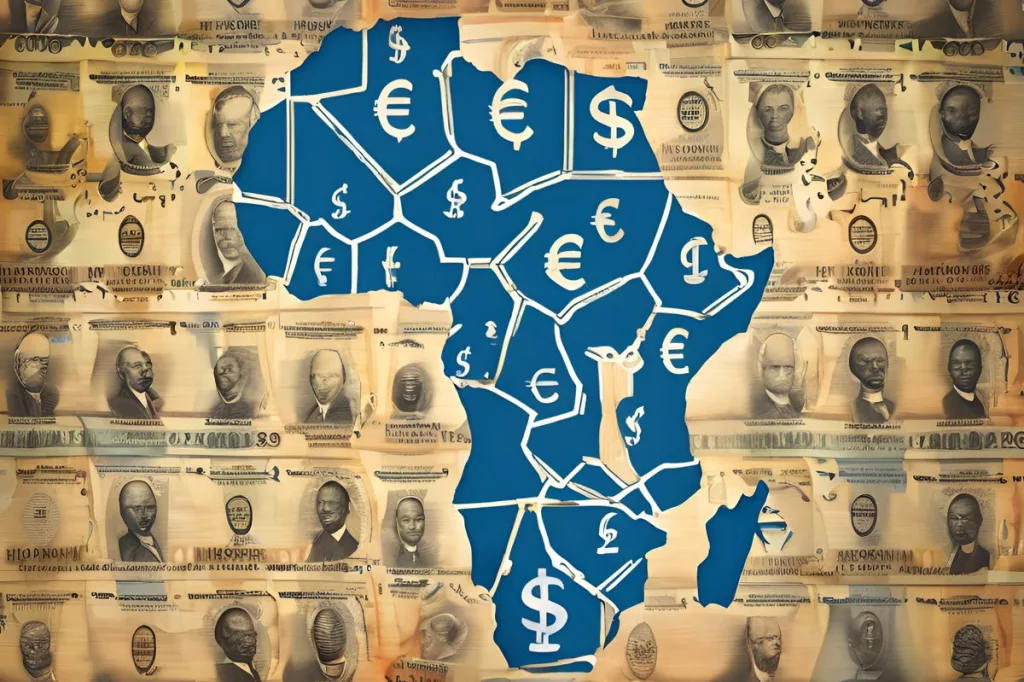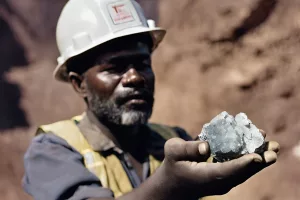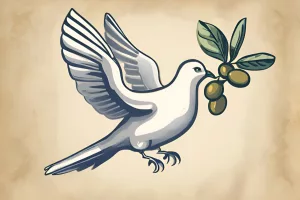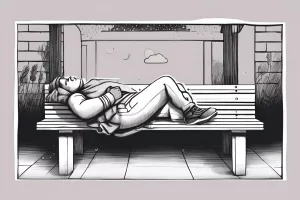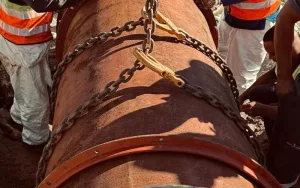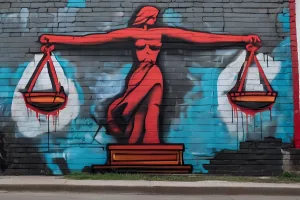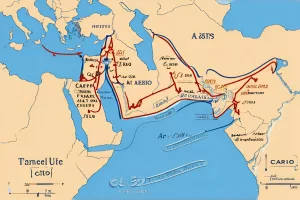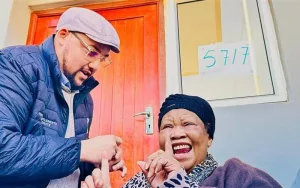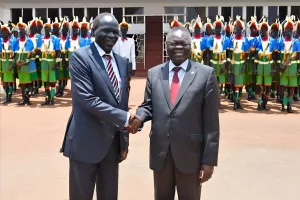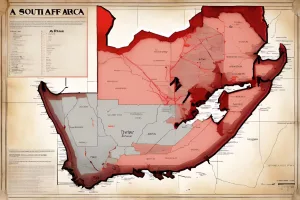South Africa reigns as Africa’s primary wealth hub, with Johannesburg being the continent’s most affluent city, home to 12,300 millionaires, 25 centimillionaires, and two billionaires. Cape Town follows closely in second place, with 7,400 millionaires, 28 centimillionaires, and one billionaire. These rankings highlight the concentration of wealth within specific nations and cities, with South Africa possessing more than double the number of highnetworth individuals compared to any other African country. The 2024 African Wealth Report showcases the continent’s financial landscape and underscores its growing economic power.
The Worker Share Ownership Conference in South Africa marks a significant step towards social and economic transformation, with over half a million workers being partowners of their companies. Worker share ownership programmes enhance morale, productivity, and innovation within companies, offering a pathway to economic inclusion. These schemes have evolved remarkably, providing workers with a seat at the decisionmaking table, strategically influencing corporate decisions, and nurturing partnerships to unearth opportunities for growth, investment, and job creation. The ongoing collaboration between governmental bodies, the labor force, the private sector, and other stakeholders is vital in creating a favorable environment for the success of employee share ownership programmes.
South Africa’s fight against racial prejudice and apartheid has had a significant impact on the postapartheid landscape of the country. The African National Congress, which led the fight, was founded in 1912 and welcomed people from all walks of life. Their legacy includes advocating for equal human rights, both locally and globally, and influencing South Africa’s approach to international relations. South Africa’s support for international law contrasts with the ongoing struggle for a sovereign Palestinian state, where Palestinians are denied basic human rights and selfdetermination.
South Africa’s unpredictable climate silently adds to the struggle of the homeless population, making their already challenging lives even more uncertain. During winters, severe chill increases the danger of frostbite and other coldrelated health issues. However, the magnitude of this humanitarian crisis remains unknown, and statesanctioned shelters offer temporary relief. Regular citizens can also contribute by donating money, food, clothes, and blankets to these shelters; it’s a shared responsibility to help those without homes weather the storm.
In Cape Town’s Parkwood district, a vandal damaged a vital valve in a water main, causing a citywide water crisis. Despite the disruption, the city administration and residents displayed resilience and worked together to resolve the issue. Effective communication, safety measures, and civic duty were essential during the crisis, and the incident served as a testament to the strong sense of community spirit and collaboration in Cape Town.
The Chatsworth Magistrate Court is a stunning symbol of hope and justice, representing South Africa’s transition to a country built on constitutionalism, dignity, and the rule of law. The recently renovated and expanded court cost nearly R203 million and incorporates ecofriendly solutions, making it easily accessible for people living with disabilities. In addition to being a tribute to freedom fighters and a crucial pillar of democracy, the project created job opportunities and training prospects for the community and employed 27 local subcontractors.
A FlySafair aircraft lost a wheel during takeoff, forcing the flight to circle back to Johannesburg instead of flying to Cape Town or Port Elizabeth. Despite the unexpected turn of events, the pilots and crew safely landed the plane with no injuries reported. The incident highlighted the aviation industry’s unwavering pursuit of safety and the resilience of its people in the face of challenges.
The Joint Commission for Cooperation (JCC) between South Africa and Egypt has marked its 10th session, a testament to the enduring friendship between the two nations. The JCC covers trade and investment, agriculture, health, tourism, and more, and aims to promote sustainable growth and prosperity. The bond between Egypt and South Africa is deeply rooted in their history of resisting oppression and their mutual commitment to freedom and justice. The JCC session is an opportunity to strengthen their relationship and tackle global challenges together.
Hout Bay in South Africa has been facing persistent water supply disruptions due to pipeline leaks and bursts, causing discomfort for the inhabitants and commercial entities. Despite the ongoing struggle, the local government is determined to find longterm solutions to the problem, while the City’s maintenance personnel and technical specialists work tirelessly to restore the water supply. However, Hout Bay residents show resilience and unity in the midst of the crisis, embodying the unbreakable spirit of the community.
The Dido Valley Development in Simon’s Town, South Africa, is a housing project worth R170 million, offering housing opportunities to 600 Redhill and Luyolo beneficiaries. The project represents a symbol of recovery and reparation, enabling the Luyolo community to reclaim their ancestral home in Simon’s Town and catering to the needs of the Redhill community. The City’s comprehensive housing allocation policy ensures a fair and transparent distribution of housing opportunities, with the project set for completion in June 2026.
South Africa is transforming its national security apparatus through the General Intelligence Laws Amendment Bill (GILAB). The Ad Hoc Committee on GILAB is seeking public feedback on critical aspects of the proposed amendments, including creating an Evaluation Committee to oversee intelligence activities, appointing a Deputy Chairperson for the JSCI, and empowering the IGI to perform oversight functions. This public engagement ensures diverse perspectives on shaping South Africa’s intelligence sector and strengthens parliamentary supervision. The Committee is welcoming written submissions on the issues and adopting technological solutions for more accessible and convenient participation.
South African President Cyril Ramaphosa’s recent visit to Juba, South Sudan, aimed to enhance the alliance between the two nations and bolster South Africa’s support for South Sudan during this crucial phase in its history. The visit highlighted the shared goals and vision of the two nations, born out of mutual struggle, and showcased the importance of diplomacy and bilateral relationships in promoting peace and fostering development. President Ramaphosa expressed South Africa’s commitment to support South Sudan during the transitional period and beyond, underlining the essence of their shared history and friendship.
Unwavering Bond Between South Africa and South Sudan: A Path to Peace and Prosperity
South Africa and South Sudan share a strong bond built on mutual respect and shared struggles for freedom. President Cyril Ramaphosa’s recent visit to Juba, South Sudan’s capital, highlighted the enduring relationship between the two countries. Constructive dialogues between the leaders of both nations aimed at reinforcing their partnership across multiple sectors, particularly towards peace, development, and democratic governance. Progress towards peace in South Sudan is evident through the formation of unified security forces and the reestablishment of pivotal institutions, indicating the nation’s resolve for democratic processes and governance.
The UK’s Foreign Office has issued a terrorism alert for South Africa due to the increased risk of terrorist activities. The warning highlights the likelihood of public areas being targeted and the global strain caused by the dispute in Palestine. The South African State Security Agency has responded calmly, while the International Relations Department has raised concerns about the evidence supporting the claims. The situation underlines the importance of vigilance, cooperation, and communication in the face of growing global threats.
Chommie toys are handmade plush collectibles from South Africa that are highly sought after by collectors. These limitededition toys are only available on the creators’ website and are deeply tied to the music of Die Antwoord. Each toy has a unique personality and power, and they are meticulously handcrafted and numbered. Chommie toys are considered a priceless commodity in the plush collectibles market and serve as physical reminders of the couple’s initial creative endeavors.
Eskom, South Africa’s national electricity supplier, has achieved a new record of three weeks of continuous and uninterrupted power supply, surpassing the previous record of 19 days. This achievement is attributed to tenacity, timely upkeep, and upgraded management practices. However, the Minister warns against complacency and emphasizes the need for persistent investment, rigorous management, and steadfast commitment to maintain this success. Eskom’s recent achievement showcases its capacity to rise above the odds, mapping out a new, positive course in South Africa’s power narrative.

